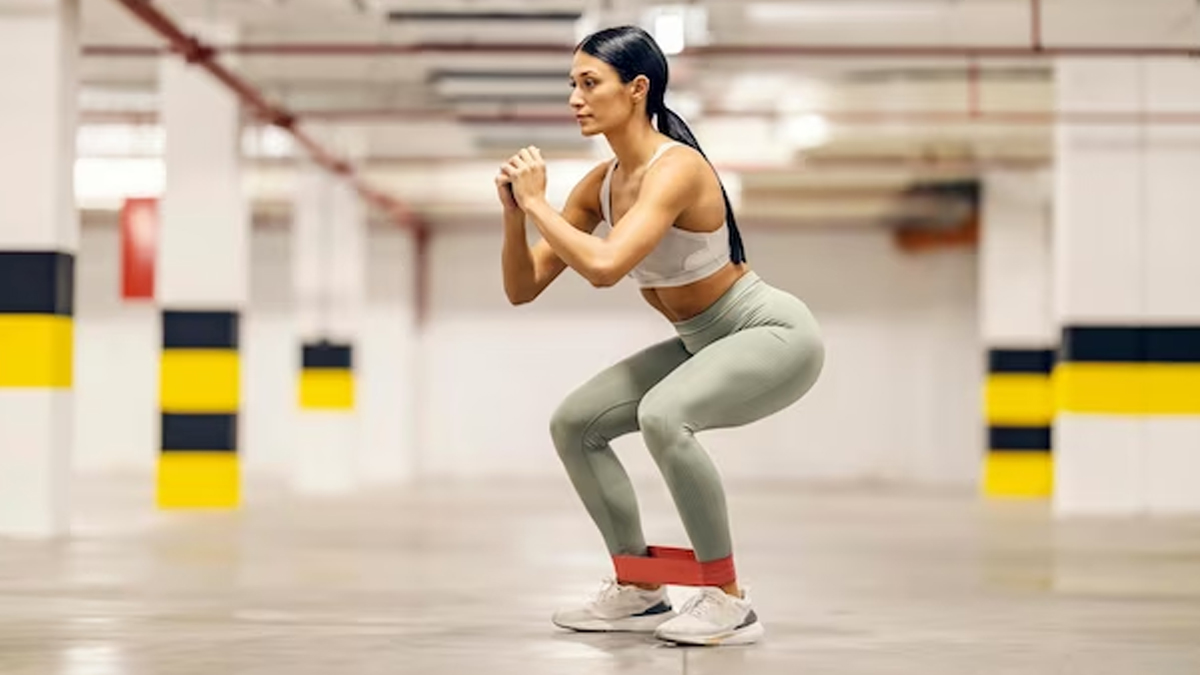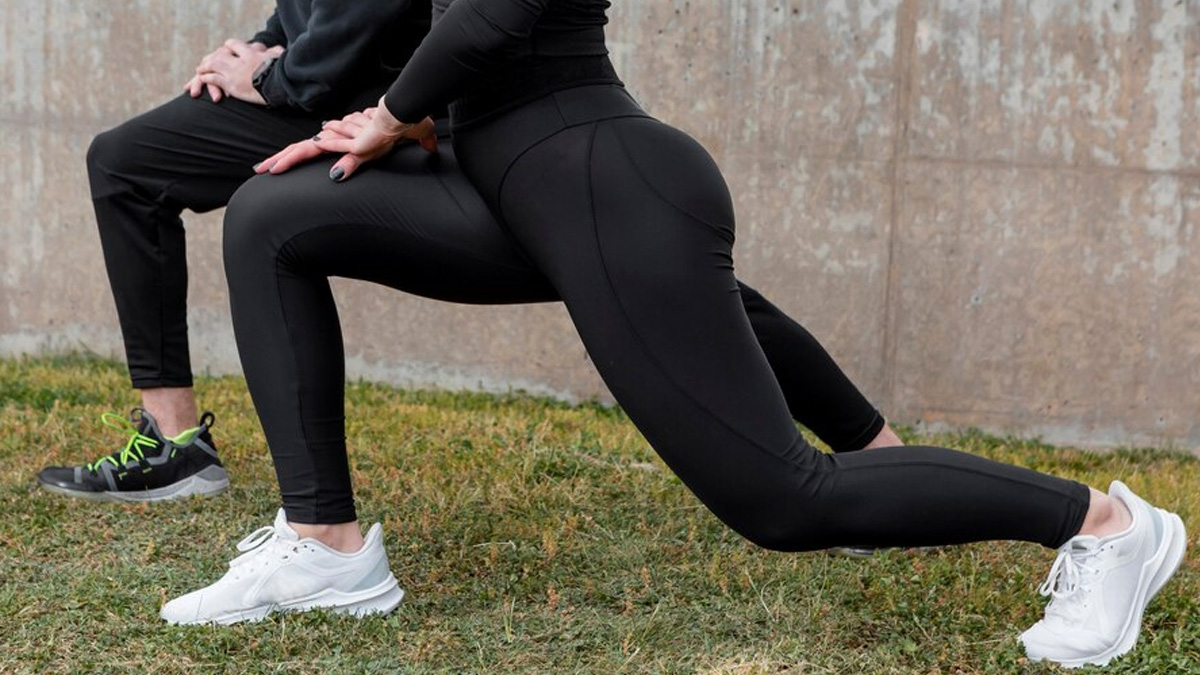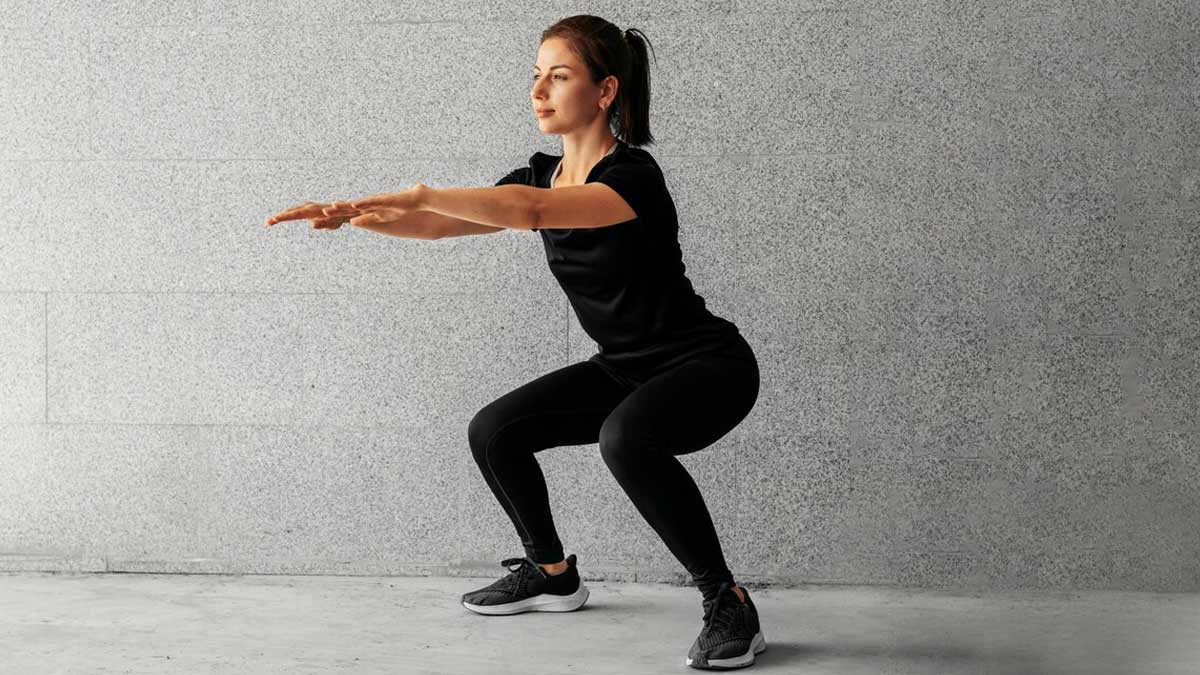Squats are an effective way to strengthen your lower body, particularly targeting the glutes, quadriceps, hamstrings, and calves. While they may be challenging to perform as a beginner, with time and consistency, squats can become a go-to strength training exercise in your routine. These functional movements not only enhance your strength but also assist with everyday tasks, such as sitting in a chair and bending down to pick something up. However, even with regular practice, some individuals may continue to struggle with performing squats correctly. If you’re wondering why this might be the case, here are several factors to consider.
Also Read: From Samantha Ruth Prabhu to Tamannaah Bhatia, Strength Training Exercises That Help South Actors Stay Fit
Incorrect Technique
Poor form can affect not only the effectiveness of an exercise but can also make it difficult to perform the exercise in the first place. Your performance with squats may also suffer if you do it with an incorrect technique. These include:
- Your knees caving in and not falling out.
- Not starting with your hips.
- Allowing your knees to go over your toes.
- Not engaging your core.
- Allowing your chest to fall forward.
- Forgetting to breathe.
- Stopping halfway and not going all the way down.
- Lifting your heels.
- Rounding your lower back.
- Arching your back.
- It is crucial that you avoid these mistakes to perform a perfect squat.
Lack Of Flexibility
Squats require a certain amount of flexibility. If your hips, hamstrings, or calves are tight, they can restrict your range of motion, making it difficult to achieve proper squat depth. Additionally, a lack of flexibility can also put strain on other muscles, potentially leading to injuries. Therefore, before anything else, it is crucial to work on your flexibility. Simple stretches and exercises, such as lunges, kneeling hip flexor stretches, and quad stretches, can help.
Weak Muscles
Having weak muscles or insufficient strength in quadriceps, glutes, or core can also lead to instability and difficulty in performing squats correctly. This is because when these muscle groups lack strength, they are less able to support your body weight and control movement. This then can increase the risk of injury and can prevent you from doing a perfect squat. However, you can incorporate targeted strength training exercises such as lunges, deadlifts, and planks into your routine, which can gradually increase resistance and build strength in the weakened muscle groups.
Also Read: Struggling With Constant Knee Pain? 5 Exercises To Strengthen Your Knees
Previous Injury And Pain
This is one of the most obvious reasons why you may not be able to perform a perfect squat. An existing injury or discomfort in the knees, hips, or lower back can make squatting painful or challenging. It is recommended that people first prioritise healing and recovering and then circle back to doing strength training exercises like squats, as it can exacerbate the condition and lead to further damage.
Reduced Mobility
Mobility refers to the ability to move freely. and therefore, if there are any limitations in the ankles or hips in terms of mobility, it can significantly impact a person’s ability to perform squats correctly. Stiffness in these joints can restrict movement and make it difficult to achieve the right depth and maintain proper alignment for squats. These issues not only hinder your performance but can also lead to discomfort or injury. Therefore, one must indulge in stretching and dynamic exercises, which can help regain movement in these crucial areas.
